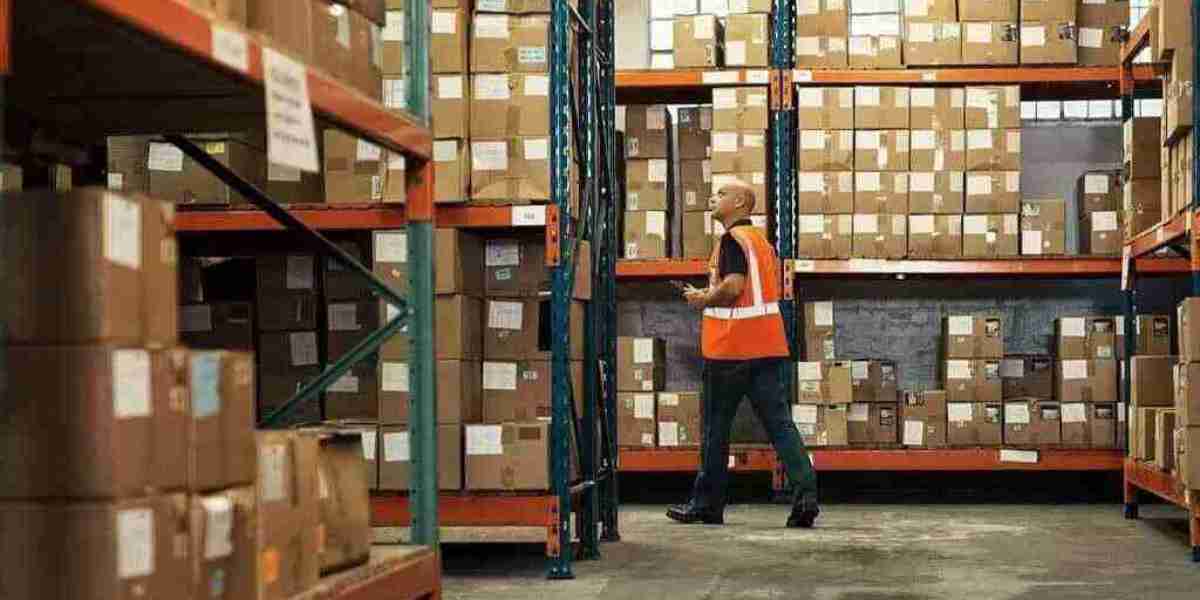Wholesale distribution is the backbone of many industries, playing a critical role in the supply chain by connecting manufacturers to retailers, businesses, and consumers. The world of wholesale distribution is vast, encompassing a wide range of products, from clothing and electronics to food and raw materials. For anyone interested in starting a wholesale business or learning more about how Distributor works, understanding the essential elements of the industry is key.
In this article, we’ll dive deep into the role of wholesale distributors, how they operate, the advantages of wholesale distribution, and how businesses can successfully navigate this sector.
What is Wholesale Distribution?
Wholesale distribution involves the sale of goods in bulk quantities to businesses, rather than individual consumers. Wholesale distributors act as intermediaries between manufacturers or producers and the retailers or businesses that sell the products to consumers. The core function of wholesale distributors is to buy products in large quantities from manufacturers or importers and sell them to resellers, who, in turn, sell the products to consumers or end users.
In contrast to retail businesses that typically sell directly to the public in smaller quantities, wholesalers generally deal in bulk purchases and enjoy lower per-unit prices due to the scale of their operations.
Key Players in Wholesale Distribution
- Manufacturer: The company or entity that produces the goods.
- Wholesale Distributor: The middleman who purchases products from manufacturers and sells them to resellers or businesses.
- Retailer: The business that buys goods from wholesalers and sells them to the end customer.
- End Customer: The final consumer who purchases products for personal or business use.
Types of Wholesale Distribution Models
There are different models within wholesale distribution that serve various industries. These models can be categorized as:
Merchant Wholesalers: These distributors buy products from manufacturers and hold inventory in warehouses. They then resell these goods to retailers or businesses. Merchant wholesalers take title to the products and assume the risk of inventory.
Agent or Broker Wholesalers: These distributors act as intermediaries who do not take ownership of the goods but instead facilitate sales between manufacturers and buyers. They usually earn a commission or fee for their services.
Drop Shippers: These wholesalers do not hold inventory. Instead, when a retailer places an order, the drop shipper directly ships the product from the manufacturer to the retailer or consumer. This model is particularly popular in e-commerce businesses.
Specialty Wholesalers: These distributors focus on a specific category of products, such as electronics, clothing, or automotive parts. They typically offer specialized knowledge and expertise in a particular market.
The Importance of Wholesale Distribution
Wholesale distribution is a critical part of the global economy. Here are some reasons why it plays such an important role:
1. Efficient Supply Chain Management
Wholesale Distributors help streamline the supply chain by efficiently handling the flow of products from manufacturers to retailers. They serve as a crucial link that ensures businesses can access a steady supply of products without having to manage the complexities of direct manufacturer relationships.
2. Cost Savings for Retailers
Wholesale distributors typically buy products in bulk, enabling them to purchase goods at lower prices. This cost-saving advantage is passed on to retailers, who, in turn, can offer competitive pricing to their customers. For small and medium-sized businesses that lack the buying power of larger corporations, wholesale distributors provide access to discounted goods they might not otherwise be able to afford.
3. Inventory Management
Wholesale distributors are responsible for managing and storing inventory. This reduces the burden on retailers who would otherwise need to allocate significant resources to warehouse space and stock management. Distributors help ensure that retailers have a continuous supply of products, avoiding stockouts and overstock situations.
4. Product Variety and Sourcing
Distributors often work with multiple manufacturers and suppliers, giving them the ability to offer a broad variety of products. For retailers, working with a wholesale distributor allows them to access a diverse product catalog without the need to build relationships with many different manufacturers.
5. Access to Niche Markets
Some wholesale distributors specialize in niche markets or hard-to-find products, which can be valuable for retailers looking to differentiate themselves in the marketplace. For example, a distributor focusing on organic food products can supply health-conscious retailers with the items they need to meet consumer demand.
Advantages of Wholesale Distribution for Businesses
1. Lower Operational Costs
One of the biggest advantages for businesses working with wholesale distributors is the cost savings. Wholesale prices are typically lower than retail prices, allowing businesses to maintain healthier profit margins. Wholesale distributors also absorb much of the operational cost associated with warehousing and inventory management, relieving businesses of those responsibilities.
2. Time Efficiency
Businesses that work with wholesale distributors do not have to spend time negotiating directly with manufacturers or dealing with logistics. Distributors take care of sourcing, quality control, storage, and shipping, enabling businesses to focus on sales, marketing, and customer service.
3. Market Insights and Trends
Wholesale distributors are often deeply connected to the industries they serve. They have extensive knowledge of market trends, consumer preferences, and product availability. Businesses can leverage this expertise to stay ahead of market demands and make informed purchasing decisions.
4. Reduced Risk
Wholesalers assume some of the risks associated with product sourcing and inventory. If a product doesn’t sell as expected, the distributor may take responsibility for overstock or unsold items. This risk-sharing helps businesses avoid large financial losses from poor inventory management.
5. Convenience and Streamlined Operations
Working with wholesale distributors simplifies the purchasing process. Retailers don’t need to build relationships with multiple manufacturers or worry about negotiating prices and delivery schedules. They can rely on a distributor to provide a consistent, reliable source of goods at competitive prices.
How to Choose a Wholesale Distributor
Selecting the right Bj Wholesale distributor can have a significant impact on the success of a business. Here are some factors to consider when choosing a distributor:
1. Reputation and Reliability
The distributor’s reputation in the industry is crucial. Look for companies with a proven track record of providing high-quality products and reliable service. Customer reviews, industry recommendations, and referrals from other businesses can provide valuable insights into the distributor’s reliability.
2. Product Selection and Quality
Make sure the distributor offers products that align with your business’s needs. It’s important to assess the quality of the products to ensure they meet your standards and those of your customers. Work with distributors who prioritize quality control and can provide warranties or guarantees.
3. Pricing and Terms
While wholesale distributors typically offer lower prices than retailers, it’s important to evaluate their pricing structure. Compare prices across different distributors and check for hidden fees or unfavorable payment terms. Ensure the pricing is competitive and offers you a reasonable profit margin.
4. Customer Support and Communication
Strong customer support is essential for a smooth partnership. Choose distributors who are responsive, communicate effectively, and are willing to resolve issues quickly. Clear communication regarding orders, shipping schedules, and product availability is vital to maintaining a successful relationship.
5. Geographic Reach and Shipping Capabilities
If your business requires products to be delivered to specific locations, make sure the distributor can meet these needs. Consider the distributor’s shipping capabilities, delivery times, and geographic reach. Working with a distributor who has an efficient logistics system in place can improve your business’s operational efficiency.
Conclusion
Wholesale distribution is an essential component of the supply chain, offering numerous benefits to businesses across various industries. By working with Wholesale Extracts Flavorfrenzy distributors, retailers can access high-quality products at lower prices, streamline their operations, and gain valuable market insights. Whether you're a new business looking to start a retail operation or an established company seeking to optimize your supply chain, understanding the role of wholesale distribution is crucial.
The right wholesale distributor can help your business succeed by providing cost-effective solutions, reliable products, and valuable industry expertise. Take the time to research potential partners and evaluate your needs to ensure you choose a distributor that aligns with your business goals.













